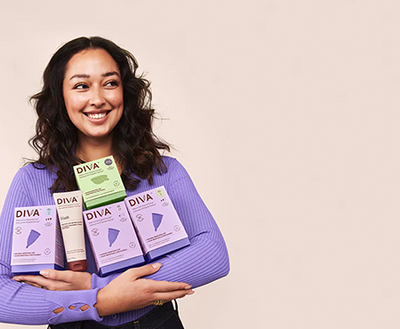
In this article /

I got into autism and puberty research when some of my young, autistic clients hit puberty and they were intimidated by the physical, emotional, and social changes it brought. Specifically, they were worried about their sexual development and the new responsibilities of caring for their period.
As a graduate student, I went to the academic literature first to find answers and returned mostly empty-handed. Outside of a few stellar investigators in the UK and the USA, people with autism and periods have not and are not the focus of much research. I felt compelled to develop studies that could directly help my clients feel more confident in taking control of their bodies, and ideally help the young adults in the greater autistic menstruator community.
Male Focus in Autism Research
Since “autism” was coined, males were more frequently diagnosed with autism, due in large part that they were the focus of the initial diagnostic criteria for autism. What professionals knew as autism was extrapolated from autistic males, and them alone.
However, autism does occur in females and recent research shows that some females may not present with the “traditional” autism traits. Therefore, autistic females are often not identified until they are much older. In consequence, the medical community has not developed as many timely, beneficial resources for these persons, including autism and puberty supports, specifically menstrual-related.
Research of Autism and Periods
In recent years, there has been a lot of momentum both academically and in the media on learning about the neurodivergent experience, particularly around periods.
Robyn Steward, a UK autistic self-advocate, researcher, and author, and colleagues surveyed both autistic menstruators and non-autistic menstruators in 2018 asking how difficult their periods were. They found that autistic menstruators experience more challenging periods due to autism-related challenges (e.g., increased behavioral and mood dysregulation and sensory sensitivities).
Separately, medical professionals have found that autistic menstruators may also have greater menstrual-related bleeding complaints and abdominal pain than non-autistic menstruators. There is still much to be discovered and discussed regarding the autistic menstrual experience, but I applaud those who have and are still leading this course.
Three resource recommendations for parents/caregivers of neurodivergent menstruators:
- The Autism-Friendly Guide to Periods (book by Robyn Steward)
- Amaze Videos (https://amaze.org)
- Sex Ed for Self-Advocates ( https://researchautism.org/audience/sexuality-relationship-ed/online-resources-for-sex-ed-for-self-advocates-podcast/ )
The “How do YOU flow?” Study
With the “How do YOU flow?” study, I hope to conduct the necessary research to help soothe and prepare young adult autistic females and their caregivers for puberty and periods. Specifically, my research intends to discern which menstrual product(s) work best and are most preferred by young, autistic menstruators. So, caregivers and menstruators can purchase these products and begin practicing menstrual care earlier and feel more comfortable with this major transition.
Second, I hope that my research may inform menstrual product companies, like DIVA, on how their products can better meet this community’s needs, by illuminating the influences that impact an autistic menstruator’s decision in choosing a menstrual product.
Interested or know someone who is?
You can read about my study in greater detail here.
If interested in participating, you can fill out this quick survey, which will ask questions regarding study recruitment. After submitting, you should hear from me within a few days!
























